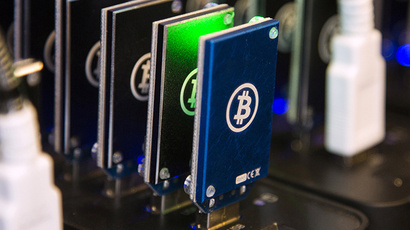Darknet drug site Silk Road booming again as Feds fail to keep up

The notorious website Silk Road – which served as a middleman that allowed its customers to anonymously buy drugs, weapons, and criminal software – is even more popular than before, despite the arrest of its founder six months ago, a new report says.
“Approximately 13,648 listings for drugs are now available on Silk Road compared to the 13,000 that were listed shortly before the FBI arrested Ross William Ulbricht and shut down the site,” claims a newly published report from the Digital Citizens Alliance, a public group dedicated to reducing online crime. “The Darknet drug economy as a whole contains 75 percent more listings for drugs.”
Though US authorities have charged Ulbricht with conspiracy to distribute narcotics, for designing and operating the website that allowed users to buy anything apart from child pornography and weapons of mass destruction, his website has been reopened with an identical interface to reassure loyal buyers.
Even Ulbricht’s alleged moniker, Dread Pirate Roberts, has been appropriated by another administrator, who users refer to as DPR2.
Silk Road operators turned a crisis into an opportunity, with February’s theft of users’ virtual currency bitcoin worth more than $2.6 million. The administrators of the site have promised to repay the money instead of shutting off services and disappearing as others have done on the so-called 'Darknet' – an unregulated part of the internet accessed through anonymous software.
“This has helped Silk Road reaffirm that it is not like the scam markets that failed customers earlier,” the report reads.
The detentions of three more people possibly connected to the operation, and rumors of further arrests, have not dampened interests, either.
“The last six months have tested the wherewithal of the Darknet Marketplaces. Arrests, site seizures, scams from small to massive, and an ever-increasing amount of paranoia have challenged those who buy and sell illicit goods online. The Marketplaces have proven resilient and as one closes or disappears, several others pop up to take its place,” alleges the report.
An appendix provided with the report shows that every single one of the most popular traders on the original Silk Road site either continues to trade there, or has moved onto other services.
The report's authors say they are not only worried about drugs, but also the general platform that Silk Road provides.
“While the brazen sales of heroin and crystal meth attract attention, the real money is in underground financial transactions...The true value of Silk Road in the criminal underground is more than drugs; it is the further enabling of secret illicit activity.”
According to the Digital Citizens Alliance, Bitcoin, Tor and Darknet Markets “are related topics, but they are not the same thing.”
“While Colorado and the state of Washington have legalized sales of marijuana, there is no sign that the US government will legitimize the sale of various illicit products,” the group noted in its report.
“The government in general struggles with developing any internet policy, and the cryptonet debate seems even more fraught with apathy,” states the report.
But few solutions seem apparent.
“The policy development areas for [anonymizer software] Tor, Bitcoin, and Darknet Marketplaces are wide open. US states may see the need to create their own policies or recommend federal ones. States may see the need to regulate bitcoin exchanges in their own jurisdictions or require internet service providers to block Tor use locally, regardless of how technically implausible it might be. This is a brave new world of policy analysis,” the report states.














